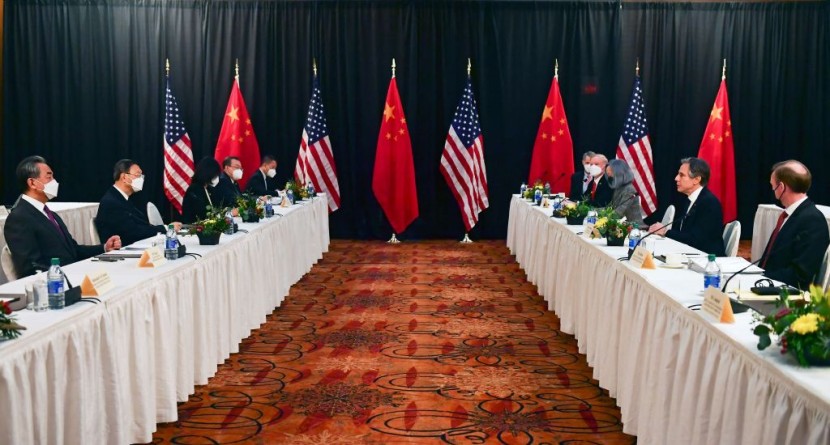In 2022, US microchip export controls were imposed to freeze China's development of supercomputers that are used to develop nuclear weapons and AI systems. Despite this, it only showed minimal effects on the tech sector of China.
The rules included the shipment restriction of Nvidia Corp and Advanced Micro Devices Inc chips that have become the global technology industry's standard for developing AI systems and chatbots.
However, Nvidia created chip variants for the Chinese market that are slowed down to meet US rules. Even the slowed Nvidia chips represent an improvement for Chinese companies.
In fact, one of the country's biggest tech companies, Tencent Holdings, estimated that systems with Nvidia's H800 will cut the time it takes to train its largest AI system by more than half, according to Reuters.
US Faces Challenge of Slowing China's Progress in Tech
The US faces the challenge of slowing China's progress in tech as the country continues to invest heavily in artificial intelligence (AI) and other emerging technologies.

The US government has imposed restrictions on the export of certain technologies to China, including Nvidia and AMD chips that are used in developing AI systems and chatbots. However, Nvidia has created chip variants for the Chinese market that are slowed down to meet US rules, which still represents an improvement for Chinese companies.
Despite these restrictions, China is still making significant strides in AI and other tech fields, and the US must find ways to compete while also protecting its national security interests.
As China continues to invest heavily in emerging technologies, particularly AI and 5G networks, the US is facing a significant challenge in slowing down its progress.
The Chinese government has made it clear that they intend to become world leaders in these fields by investing billions of dollars into research and development. This push towards technological advancement poses both an economic threat as well as a national security concern for the US.
The Trump administration implemented restrictions on certain technologies being exported to China but with limited success due to tech companies creating slowed-down versions for use within their market. Additionally, many fear that these measures may not be enough given how rapidly China is advancing technologically - leaving the US scrambling behind.
How the US Can Maintain Global Dominance
To maintain global dominance across all sectors, including technology; experts suggest alternative solutions such as increased investment towards R&D or even establishing international standards when dealing with emerging technologies like AI which could benefit both countries equally while reducing concerns related to espionage or theft of intellectual property from either side through collaboration agreements between corporations working together under supervision/agreements stipulating ethical guidelines before sharing sensitive information about new developments privately/publicly available sources alike.
The US can also work with its allies to coordinate efforts to counter China's push toward technological dominance. The US can work with its partners to establish international standards for emerging technologies like AI, which can help to level the playing field and prevent China from gaining an unfair advantage.
China's rapid progress in emerging technologies like AI poses a significant challenge for the US. To stay competitive, the US must find ways to slow down China's progress while also investing in its own talent development and domestic tech industry. Collaboration with allies and the establishment of international standards can also help to level the playing field and prevent China from gaining an unfair advantage.
Related article: US-China Tension Intensifies After Discovery of Spy Balloon
© 2026 HNGN, All rights reserved. Do not reproduce without permission.








